1

Society & education
Pavel Durov: the engineering of freedom
Founder of Telegram, Pavel Durov defends total freedom based on discipline, technology, and resistance to power.
2 mins
Pavel Durov, the man who refused to give in
No state, no investors, no compromises. Pavel Durov made Telegram a digital fortress and freedom an engineering protocol.
In a world where freedom is eroded by consent, where every click leaves a trace and every platform sells its users, Pavel Durov is an anomaly.
Founder of VK (the Russian Facebook) then Telegram, he gave up everything the system rewards (easy money, fundraising, political recognition) to preserve something that had become rare: total independence.
His lengthy interview with Lex Fridman (over four hours) is a dive into the mechanics of a free man.
Not in the romantic sense of the word, but in the sense engineering : freedom as a condition for performance, truth and system integrity.
1. Freedom as an operating system
Durov never saw freedom as a right. For him, it is An operating protocol.
Born in the USSR, raised in Italy, he experienced two opposing realities: collective control and individual freedom.
“Societies that restrict freedom become ineffective. The energy is lost in fear.”
His approach is radical: Every addiction is a weakness.
That's why Telegram has no shareholders, investors, or stable headquarters.
It is a stateless company, a kind of DAO before its time.
It's not about running away from the rules, but about staying incompressible.
“From the moment you accept money from a state or fund, you belong to them.”
Telegram is not a product.
It is an architecture of resistance.
An infrastructure that is designed to work even if everything else falls apart.
2. Discipline and asceticism: freedom has a price
Durov lives without alcohol, without personal phones, without material attachments.
He trains every day, eats little, sleeps little.
“You can't control the world, but you can control yourself.”
It's not ostensible stoicism. It is a strategy.
Each addiction is an entry point for manipulation through dopamine, advertising, or laziness.
Telegram, in its design, reflects this same logic: no unnecessary distractions, no code fat, no marketing tricks.
His asceticism is not a spiritual posture, but a Power hygiene.
In a world saturated with notifications, the real rarity is concentration.
And that may be the key: Durov is not seeking to flee power, he is looking to Mastering it from within, through discipline.
3. Telegram: a geopolitical anomaly
900 million users. Zero investors. Zero ads. Zero debt.
Telegram is not owned by any state, is not financed by any bank, and does not respond to any government.
“We would rather shut down Telegram in a country than violate a user's privacy.”
It is a hushed declaration of war on the very structure of modern power: that of platforms, regulators and states.
When in 2024, France arrested Durov on the background of investigations linked to disinformation, it was a signal: Telegram is bothering.
The platform is not content with being a communication tool.
It is a digital free zone, a space that escapes the institutional grid.
In a world where everything could tend towards centralization (GAFAM, CBDC, generative AI, mass surveillance), Telegram is doing the opposite: fragment, encrypt, distribute.
Its existence alone questions the established order: what if individual sovereignty became possible again on a global scale?
4. Power, Corruption, and Human Nature
For Durov, censorship is not an ideological issue. It's a biological reflex.
Every organization tends to maintain itself. Governments, media, platforms: all end up extending their power in the name of the “common good.”
“No dictator starts by saying: I want to make you unhappy. They say: I want to protect you.”
The mistake, he says, is to believe that evil comes from a few corrupt individuals.
The real danger is natural control mechanics this gradual shift where each rule seems reasonable, each temporary ban, each surveillance “necessary”.
Telegram is not a libertarian utopia.
It is a firewall against this natural slope.
By refusing pressure from Russia, Iran, France or Apple, Durov is not defending an ideology, but a physical one: that of minimal resistance to system corruption.
5. The economy of resistance
Telegram achieved profitability with over 15 million Premium subscribers, without selling data, without advertising, without debt.
It's an industrial feat.
And an economic manifesto: you can create value without betraying trust.
“Money should never be the driver. It's a fuel, not a GPS.”
Durov has refused multi-billion takeover offers.
He prefers sovereignty to wealth.
Its only asset: Bitcoin.
Not to speculate, but to remain liquid, mobile, unassailable.
He talks about the “two-chair dilemma”:
On the first, comfort, money, acceptance.
On the second, freedom, solitude, risk.
“Anyone who tries to sit between the two ends up falling.”
In a world where everyone wants to be “safe”, Durov chooses fire chair.
6. Beyond the body: continuity and immortality
Towards the end of the interview, the conversation slips into death, transmission, consciousness.
Durov says little about himself, but often about his brother Nikolai (a mathematical genius and co-founder of Telegram) and their father, a professor of philology.
This intellectual lineage structures his vision: knowledge as a heritage, freedom as a duty.
“We can't control our mortality, but we can control what we leave behind.”
It evokes the concept ofquantum immortality : the idea that in an infinite multiverse, there will always be a version of us that continues.
That survival is not biological, but probabilistic.
This idea summarizes his entire career: not to seek to live longer, but to create systems that outlive their creators.
Telegram is not a business.
It is a self-supporting organism, designed to live without masters, without centers, without compromise.
An experience of sovereignty applied on a global scale.
Conclusion: Freedom as a vital risk
Pavel Durov is not a role model, much less a messiah.
It's a stark reminder that freedom is never given, always taken.
Let it not be decreed, but maintained through discipline, refusal, courage.
In a world where compliance is sold as a virtue and safety as a horizon, he embodies an unsettling truth:
Freedom is not comfortable. She is dangerous, demanding, uncompromising. But it's the only thing worth protecting.
FRACTALS - Mapping the forces that are redesigning the future.



